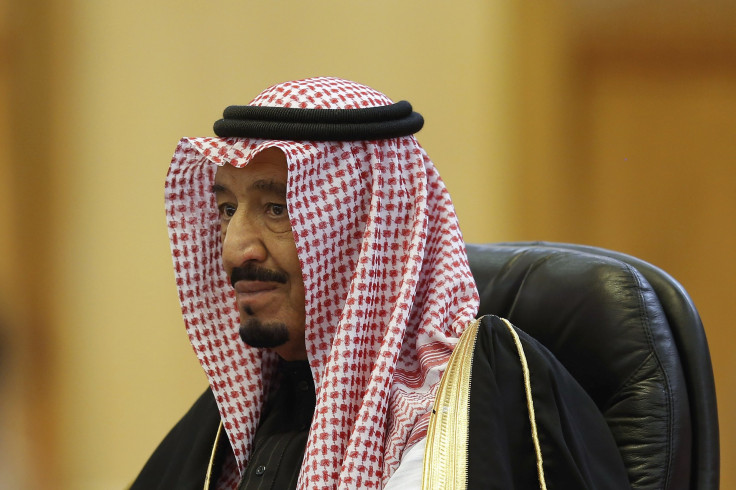Saudi Arabia King Salman's Success Hinges On Making New Political Friends In The Region

King Salman bin Abdul-Aziz Al Saud ascended to the Saudi Arabian throne Friday amid one of the most tumultuous times in the Middle East since the Arab Spring. With Iran’s growing influence in the region as background, the extremists threatening Saudi Arabia from the north and the south have pushed the Sunni kingdom into a proxy war that has made repairing broken relationships and establishing new ties essential for the new monarch.
In the past year, the late King Abdullah began mending ties with Shiite-run Iraq, in service of the countries’ shared interest in defeating the Islamic State group. However, the memory of former Iraqi Iraqi Prime Minister Nouri al-Maliki’s violent crackdown on Sunnis still lingers in the House of Saud, and has left many in the kingdom skeptical about Iraq’s new government. This could shift Salman’s focus from repairing relationships with Shiites to creating ties with Sunni populations in countries plagued by unrest.
“Salman has been part of the decisions for current policies as defense minister and crown prince, so [he] won’t radically change them,” said Karen Elliott House, the author of “On Saudi Arabia: Its People, Past, Religion, Fault Lines -- and Future” and a retired Pulitzer Prize-winning reporter for the Wall Street Journal. “Though, given his closer ties to the conservative religious establishment, I think they will work on him to be even more suspicious and negative on Iran in particular, and Shias in general including those in Iraq.”
While Salman was crown prince, Saudi Arabia built an almost-600-mile fence on the border with Iraq to keep out militants, and ramped up security there. The kingdom also planned to reopen its embassy in Baghdad and establish a new diplomatic center in Erbil, the capital of Iraq’s Kurdistan region. The factor most indicative of the burgeoning relationship between the two countries was the agreement to share intelligence.
“We have started bilateral contacts,” Prime Minister Haider al-Abadi told International Business Times at the World Economic Forum in Davos, Switzerland, Friday. He added that intelligence and military cooperation between the two “is starting at a very slow pace, but we look forward to it speeding up.”
As a leading -- and very wealthy -- member of the U.S.-led coalition to battle Islamic State group militants in Iraq and Syria, and as a Sunni powerhouse, Saudi Arabia’s influence in the region is matched only by its Shiite counterpart in Iran.
Iran and Saudi Arabia are currently facing off in a proxy battle for Yemen. In the past week, the Saudi-backed Yemeni president, Abed Rabbo Mansour Hadi, and his Sunni-led administration stepped down, creating a power vacuum that both al Qaeda in the Arabian Peninsula and the Shiite Houthi rebels, reportedly backed by Iran, want to fill.
With Iran making quiet gains in Yemen while still supporting Bashar Assad’s regime in Syria and the militant group Hezbollah in Lebanon, the new Saudi king may have to turn to the U.S. for help, experts said. However, the American position on the region’s conflicts so far has been to only intervene when there have been direct threats to U.S. assets, such as by the Islamic State group in Iraq. That leaves Salman with the option of buying the support of Sunni populations living under Shiite rule.
“The Saudi technique is to use money to engage Sunni supporters inside these fragile chaotic countries like Syria, Iraq and Yemen to do Saudi’s bidding,” House said. “Saudi Arabia wants as many friends and as much influence as it can muster in all the countries that no longer have dictatorial strongmen as leaders and thus are being ‘exploited,’ in the Saudi view, by Iran, which does the same -- seek to buy and influence populations against Saudi interests.”
However, as many of the extremist groups operating in the region are also Sunni, Salman’s commitment to normalizing ties with Iraq is essential to crushing the insurgency. If not, the king could find himself competing with both the Islamic State’s self-declared caliph, Abu Bakr al-Baghdadi, and Iran’s ayatollah, Ali Khamenei, for allegiance in coming years.
“This power struggle between Saudi and Iran is the key reason there is so much chaos and conflict in the region now,” House said.
© Copyright IBTimes 2024. All rights reserved.






















